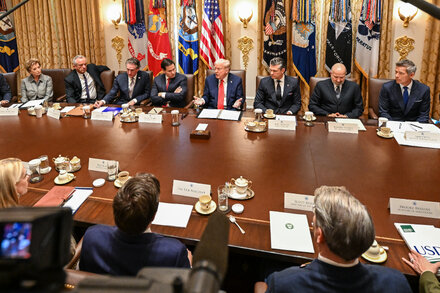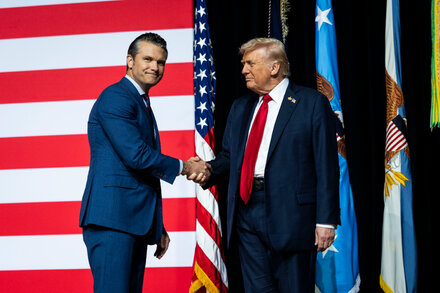The presidency of Donald J. Trump, spanning from 2017 to 2021, presented unprecedented challenges and extensive scrutiny of the United States Constitution, prompting widespread public and scholarly debate regarding its interpretations and the resilience of American democratic institutions. This period saw fundamental principles, including the separation of powers, the role of the judiciary, executive authority, and the electoral process, tested in various ways.
Executive Power and Checks and Balances
One of the most significant areas of constitutional debate centered on the scope of executive power. The Trump administration frequently asserted broad presidential authority, leading to conflicts with both Congress and the judiciary. Issues such as the use of executive orders, the declaration of a national emergency to fund a border wall, and assertions of executive privilege in response to congressional subpoenas sparked intense legal and political battles. Constitutional scholars debated whether these actions pushed the boundaries of Article II, which defines the executive branch, and how they impacted the system of checks and balances designed to prevent the overreach of any single branch.
The Judiciary and Judicial Appointments
The Trump era also brought the role of the judiciary into sharp focus. With three Supreme Court appointments—Justices Neil Gorsuch, Brett Kavanaugh, and Amy Coney Barrett—the ideological balance of the nation’s highest court shifted significantly. These appointments, along with numerous federal judicial selections, ignited passionate debates about judicial independence, the politicization of the courts, and the long-term impact on constitutional law. Critics and supporters alike often viewed these appointments through the lens of specific constitutional interpretations, particularly regarding originalism versus a living constitution.
Electoral Integrity and the Transfer of Power
Perhaps no period since the Civil War has seen such intense scrutiny of the electoral process and the peaceful transfer of power. Following the 2020 presidential election, the Trump campaign filed numerous lawsuits challenging the results, alleging widespread fraud. These challenges, largely unsuccessful in court, led to extensive discussions about the Electoral Count Act of 1887, state election laws, and the role of the Vice President in certifying electoral votes. The events of January 6, 2021, at the U.S. Capitol, further underscored concerns about the stability of democratic institutions and the constitutional processes governing elections and transitions.
First Amendment Debates
The First Amendment, guaranteeing freedoms of speech, press, and assembly, also underwent considerable examination. Debates arose concerning the President’s rhetoric regarding the media, the regulation of social media platforms, and the boundaries of protected speech in an increasingly polarized public sphere. The rights of protesters, counter-protesters, and the government’s role in managing public discourse became recurring constitutional topics.
Impeachment Proceedings
Donald Trump became the first U.S. President to be impeached twice by the House of Representatives. The first impeachment in late 2019 concerned allegations of abuse of power and obstruction of Congress related to a phone call with Ukraine’s president. The second, in early 2021, focused on charges of incitement of insurrection following the Capitol attack. These proceedings, rooted in Article I, Sections 2 and 3, and Article II, Section 4 of the Constitution, prompted extensive deliberation on the constitutional standards for “high crimes and misdemeanors” and the process of congressional accountability for a sitting or former president.
Fourteenth Amendment Considerations
More recently, discussions around the Fourteenth Amendment, specifically Section 3—which disqualifies individuals who have engaged in insurrection or rebellion against the U.S. Constitution from holding office—gained prominence in legal arguments concerning presidential eligibility. While not extensively litigated during the Trump presidency itself, these arguments emerged in the post-presidency era, demonstrating the ongoing, evolving nature of constitutional interpretation in response to new circumstances.
The “Trump Era” provided a rigorous stress test for the foundational document of American governance. It underscored the Constitution’s enduring relevance while also highlighting its reliance on adherence to norms, institutional strength, and continuous public engagement for its principles to remain robust and effective.
Source: Read the original article here.





